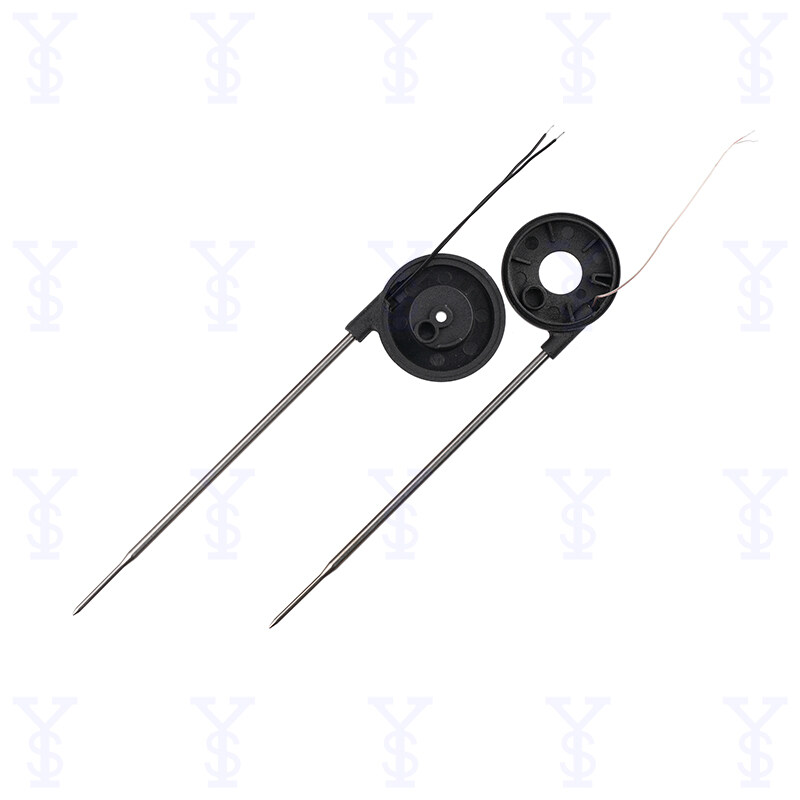emailFormatError
אימייל לא יכול להיות ריק
האימייל כבר קיים
6-20 תווים (אותיות פלוס מספרים בלבד)
הסיסמה אינה עקבית
emailFormatError
אימייל לא יכול להיות ריק
אימייל לא קיים
6-20 תווים (אותיות פלוס מספרים בלבד)
הסיסמה אינה עקבית


Wireless Probe Meat Thermometer: The Key to Perfectly Cooked Meals Every Time
Cooking meat to the perfect temperature is an art. Whether you’re grilling steaks, roasting chicken, or preparing a holiday turkey, the right internal temperature is crucial to achieving delicious and safe results. A wireless probe meat thermometer has revolutionized how home cooks and professional chefs monitor their food's temperature, making it easier than ever to achieve precision and consistency in every meal.
In this guide, we’ll explore the advantages of using a wireless probe meat thermometer, how it works, and what to consider when purchasing one. We’ll also cover tips on achieving accuracy in both Fahrenheit and Celsius, ensuring your meals are perfectly cooked every time.
What is a Wireless Probe Meat Thermometer?
A wireless probe meat thermometer is a kitchen gadget designed to measure the internal temperature of meat and other foods without the need for wires. Unlike traditional meat thermometers that require you to stand close to the oven or grill, a wireless model allows you to monitor the temperature remotely via a connected device such as your smartphone or a handheld monitor.
The thermometer consists of a probe that you insert into the meat and a transmitter that sends the temperature data to your device. This allows you to keep an eye on the cooking process without needing to constantly open the oven or check the grill, which can let heat escape and affect the overall cooking time.
Why You Need a Wireless Probe Meat Thermometer
Using a wireless probe meat thermometer offers a range of benefits, from convenience to improved cooking results. Here are some reasons why this device is a must-have in any kitchen.
1. Accurate Cooking Every Time
Achieving the perfect level of doneness can be tricky, especially with different types of meat. Chicken needs to be cooked to at least 165°F to ensure it's safe, while a medium-rare steak is best at 135°F. Using the thermometer takes the guesswork out of this process. Simply insert the probe, set the desired temperature, and let the thermometer do the rest. Many wireless meat thermometers are equipped with settings for various types of meat and doneness levels, helping you achieve precision every time.
2. Remote Monitoring
The biggest advantage is its ability to monitor temperature remotely. Whether you’re in the kitchen preparing side dishes or relaxing in another room, you can easily check the status of your food. Most devices connect via Bluetooth or Wi-Fi, allowing you to stay connected within a certain range. This feature is particularly helpful when grilling outdoors or cooking large cuts of meat that take hours to reach the ideal temperature.
3. Prevents Overcooking
Nothing ruins a meal like overcooked, dry meat. With the meat thermometer, you can set alarms that notify you when the food reaches the desired temperature. This way, you can pull your meat off the heat at exactly the right moment, ensuring juicy, flavorful results.
4. Versatile for Different Types of Cooking
Whether you’re roasting, grilling, smoking, or even slow-cooking, the meat thermometer is a versatile tool that can be used in a variety of cooking methods. It’s not just for meat either—you can use it to check the temperature of casseroles, bread, or even deep-fried dishes.
How Does a Wireless Probe Meat Thermometer Work?
The operation is relatively straightforward. The thermometer includes two main components: the probe and the transmitter.
1. The Probe
The probe is typically made of stainless steel and designed to withstand high heat. You insert the probe into the thickest part of the meat, making sure it does not touch bone, fat, or gristle, which could affect the accuracy of the reading. The internal temperature of the meat is then measured by the probe.
2. The Transmitter
The transmitter is a small device connected to the probe by wireless signals. It sends the temperature data from the probe to a monitor, either in the form of a separate handheld device or a smartphone app. Some models offer connectivity through Bluetooth, while others utilize Wi-Fi, providing a wider range of control.
3. Setting Alarms and Monitoring
Most meat thermometers come with pre-programmed settings for different types of meat and doneness levels. You can also manually set your target temperature if you prefer. As the meat cooks, you can monitor the temperature in real-time. Once the desired temperature is reached, the thermometer alerts you, ensuring perfectly cooked meat every time.
Choosing the Right Wireless Probe Meat Thermometer
When selecting a wireless probe meat thermometer, there are several factors to consider to ensure you get the best tool for your kitchen.
1. Temperature Range
The temperature range is one of the most important factors when choosing a wireless thermometer. Make sure the thermometer can measure both low and high temperatures, depending on the types of cooking you do. A good meat thermometer should measure from around 32°F to 572°F (0°C to 300°C). This range will cover most cooking needs, from slow-roasting meats to high-heat grilling.
2. Accuracy
Accuracy is critical when using a food thermometer. The best meat thermometers offer precise readings, often within 1 or 2 degrees of accuracy. This is essential for cooking meats to a specific doneness level. Ensuring your thermometer provides accurate readings in both Fahrenheit and Celsius is also important, especially if you follow recipes from different parts of the world.
3. Battery Life
The meat thermometer relies on batteries to transmit the data. Look for models with long-lasting battery life, especially if you’re cooking large cuts of meat that take hours to prepare. Many wireless thermometers come with rechargeable batteries, which can save you money in the long run.
4. Ease of Use and App Integration
Many wireless meat thermometers are equipped with smartphone apps that allow you to monitor your food’s temperature in real-time. These apps often come with additional features, such as temperature history, alarms, and even recipes. Be sure to choose a thermometer with a user-friendly app that offers the features you need.
5. Durability
The probe of the thermometer should be made from durable, high-quality materials such as stainless steel. Since it will be exposed to high temperatures and potentially moisture, it needs to be able to withstand these conditions without degrading over time.
How to Use a Wireless Probe Meat Thermometer for Optimal Results
Using the meat thermometer may seem straightforward, but following a few best practices can ensure you get the most accurate results.
1. Proper Placement
Always insert the probe into the thickest part of the meat, away from any bones or fat. The temperature around bones or fat can be higher or lower than the actual internal temperature of the meat, leading to inaccurate readings.
2. Preheat the Probe
For faster, more accurate readings, preheat your thermometer by inserting it into the food probe thermometer accuracy range. This ensures the probe doesn’t give a false low reading when initially inserted into cold meat.
3. Monitor Throughout Cooking
While the thermometer allows for remote monitoring, it's essential to occasionally check the food’s progress, especially with large cuts of meat that may cook unevenly. Some models even allow you to monitor multiple probes simultaneously, perfect for cooking different meats at once.
4. Resting Meat After Cooking
Once the thermometer signals that your meat has reached the desired temperature, remove it from heat and let it rest. Resting allows the juices to redistribute throughout the meat, enhancing its flavor and texture.
Conclusion
A wireless probe meat thermometer is a game-changer for anyone serious about cooking meat to perfection. By offering accurate temperature readings, remote monitoring, and convenience, it ensures that your meals are not only delicious but also safe. Whether you’re grilling, roasting, or smoking meats, this handy tool will take your culinary skills to the next level.
With so many options available on the market, choosing the right wireless probe meat thermometer depends on your specific needs. Look for features like a wide temperature range, food probe thermometer accuracy in both Fahrenheit and Celsius, and user-friendly app integration. Once you find the right thermometer, you’ll wonder how you ever cooked without it!

